My Review
For those of us attempting to cast a wider net in contemporary world fiction, The Complete Review Guide to Contemporary World Fiction is no less than a godsend. I could not imagine designing a more useful reference tool for readers, bloggers, and reviewers wishing to discover authors of distinction from around the world. This book grew out of the Complete Review website, founded by M. A. Orthofer in 1999 to provide timely information on book reviews of international fiction, along with publishing and translation information for readers. This website is phenomenal, but I am delighted to have a guide in book form that digs deep into the literary scene for nearly all the countries of the world and offers a rich treasure trove of contemporary fiction to consider.
What is considered contemporary? The Guide focuses on fiction after 1945, but rest assurred, earlier fiction is discussed to provide context for the relevant country or national literature. A fascinating Introduction describes the selection process and some of the issues involved in classifying the works. The author has done internet detective work ever since founding the Complete Review website, trawling newspapers worldwide, online reviews and forums, and a host of professional websites, including publishers’ foreign rights pages, international literary agencies, and national organizations that promote the exchange of book information and news about contemporary fiction. An extensive appendix of Supplemental Resources shares many of the available sources with the reader. The very scope of information available online, as the author notes, creates the need for an overview, country by country, as a helpful “entry point” for readers seeking to delve into a nation’s literature.
Here are some of the considerations that went into making the Guide:
- How to classify an author who has written in more than one language? Nabokov, for one, wrote in Russian and then in English, and this is not an uncommon situation because authors tend to move around both geographically and linguistically. Today, for example, Indian-American novelist Jhumpa Lahiri, has just relocated to Rome and made the transition from writing in English to writing exclusively in Italian, and one can anticipate future works of fiction in her new chosen language.
- How to classify authors geographically when their country itself has undergone transitions? This comes into play in Europe in the comparatively recent reunification of Germany, and in the breakup of the Soviet Union and the former Yugoslavia. The Guide gives separate consideration to contemporary fiction originating in the Federal Republic of Germany (West), the German Democratic Republic (East), and then a reunified Germany. In Central Africa, fiction produced in the Democratic Republic of the Congo (known formerly as Belgian Congo and then Zaïre), in which the difficult political situation has largely inhibited any flourishing of book culture (with exceptions that are noted), is contrasted with that from Congo-Brazzaville (Republic of the Congo), which has produced several well-known writers. Although the guide is organized by continent and then by region, you will find detailed treatment down to individual countries, as they are currently constituted.
- How to classify writers who have relocated in adulthood? This issue overlaps to some extent with the issue of language but also depends on the writer’s predominant subject matter. Chinua Achebe moved between Nigeria and the United States, finally settling in the U.S. after 1990 to teach at Bard College. His novels are revelatory of Nigerian traditional life under the twin impacts of colonial rule and modernity, so they are classified in his native country.
Orthofer summarizes the guiding criteria for classification:
“In The Complete Review Guide, authors are assigned to specific locales according to–in order of significance–the language in which they write, their domicile (previous or original as well as current), the subject matter of their fiction, and their reputation.” (p. 4)
Regardless of classification decisions, cross-cultural connections are carefully treated wherever an author and that author’s works are discussed.
The problem for those of us who want to read international fiction (as Ann Morgan will attest from her year of reading the world) is finding good translations into the language one reads (English, in this case). Realistically, this is the only way most of us have access to some level of appreciation of an author’s achievement and fictional worldview. This guide is “emphatically a reader’s guide for an English-speaking audience.” American publishers have been slower to introduce translated works, and the translation market has been dominated by fiction translated from French or Spanish, enjoying sustained interest in America, and a selection of Nobel laureates. This is changing gradually. The translation boom in European crime fiction, especially from Scandinavia, has meant that crime fiction has gotten special attention from translators across many languages, and this is reflected in the Guide, which often devotes a special section to crime fiction in a given country. Orthofer traces the recent history of globalization in literature and how it is affecting the translation and dissemination of fiction.
As a reader, I am most excited to ask, what’s out there? And, how will I know where to begin? Fortunately, each country’s entry includes a mini-overview of its most prominent authors, summary and evaluation of major works, and boxes of other notable writers to “keep in mind.” Every title mentioned (always in English) has an original publication date and the translation date (if different). I will share a few random discoveries that caught my eye:
- The greatest modern writer in Catalan is considered to be Mercè Rodoreda (1908-1983); her most important works are The Pigeon Girl (1962, English 1967) and A Broken Mirror (1974, English 2006). This is very typical of this guide–“Spanish” writers in Basque, Catalan, and Galician receive separate notice, in addition to Castilian writers.
- Manuel Rivas (b. 1957) is the leading Galician writer (The Carpenter’s Pencil, 1999; English 2001).

Jonathan Dunne, trans.
- Heðin Brú (1901-1987) published an important novel in Faroese, the language of the Faroë Islands, in 1940. The English translation, The Old Man and His Sons, was published in 1970 and is readily available. Although most of the authors discussed in the chapter on Scandinavia were familiar to me, Heðin Brú was new; I already have my copy, ready to read on Kindle and include on my Northern Lights Reading Project.
- Aleksis Kivi (1834-1872) wrote a Finnish classic, still important today, called Seven Brothers (1870, English 1929, 1991). This is a good example of the way the Guide anchors the overview for each country with key works that pre-date the main corpus of post-war fiction being catalogued.
- Nervous Conditions (1988) by Tsitsi Dangarembga (b. 1959) is an autobiographical novel, and the first novel by a Zimbabwean woman.
- The first novel from Malawi is No Easy Task (1966) by Aubrey Kachingwe (b. 1926).
- Wizard of the Crow (2004-2006, English 2006) by Kenyan Ngũgĩ wa Thiong’o (b. 1938; also known as James Ngugi) is a satire set in a fictional African republic. This epic work has won numerous literary prizes.

Trans. by author
- Evening Is the Whole Day (2008) by Preeta Samarasan (b. 1976) is a popular family saga about Indians living in Malaysia.
- Goh Poh Seng (1936-2010) wrote If We Dream Too Long (1972), deemed the first true Singaporean novel.
I invite you to explore The Complete Review Guide to Contemporary World Fiction for yourself. It manages to include just the right amount of information about authors and their works to engage one’s interest and lead to further exploration. One can only be grateful to the translators who undertook to share these works of international fiction with English-speaking readers, and I am surely grateful to M. A. Orthofer, for the dedication that it took to offer this comprehensive guide. Be sure to visit the Complete Review website as well to find links to full-length reviews of many titles. You are sure to find something amazing.
*******
The Complete Review Guide to Contemporary
World Fiction
(Literary Criticism/ Reference/ World Literature/ Literary Studies)
Released April 5, 2016
496 pages
Available in Paperback, Hardcover, and e-book (from the publisher)
Amazon | Complete Review Website | Publisher’s page | Goodreads
Description
For more than a decade, the Complete Review has been an essential site for readers interested in learning about new books in translation and developments in global literature. Expanding upon the site’s content, this wide-ranging yet user-friendly resource is the perfect guide for English-language readers eager to explore fiction from around the world. Profiling hundreds of titles and authors from 1945 to today, with an emphasis on fiction published in the past two decades, this reference provides a fascinating portal into the styles, trends, and genres of the world’s literatures, from Scandinavian crime thrillers and cutting-edge works in China to Latin American narco-fiction and award-winning French novels.
What sets this guide apart is its critical selection of titles that define the arc of a nation’s literary development, paired with lively summaries that convey both the enjoyment and significance of each work. Arranged by region, country, and language, entries illuminate the fiction of individual nations, cultures, and peoples, while concise biographies sketch the careers of noteworthy authors. Compiled by M. A. Orthofer, an avid book reviewer and founder of the Complete Review, this reference will benefit from an actively maintained companion site featuring additional links and resources and new reviews as contemporary works are published. The Complete Review Guide to Contemporary World Fiction is perfect for readers who wish to expand their reading choices and knowledge of contemporary world fiction.
About the Author
M. A. Orthofer is the founder, managing editor, and lead contributor to the Complete Review and its blog The Literary Saloon. Launched in 1999, the Complete Review has been praised by the Times Literary Supplement, Wired, and the New York Times Book Review, which called the site “one of the best literary destinations on the Web.” Orthofer has also served as judge for the Best Translated Book Award and the Austrian Cultural Forum’s ACF Translation Prize, and is a member of the National Book Critics Circle.
*******
*Note*: I thank Columbia University Press and NetGalley for providing an advance electronic copy of this book, in exchange for an honest review. I did not receive any other compensation, and the views expressed in my review are my own opinions.
*******




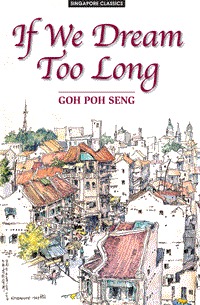


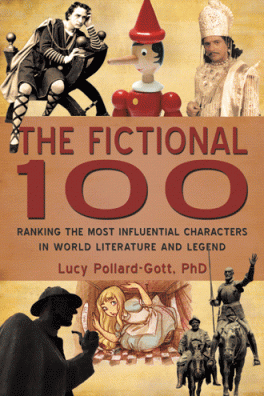


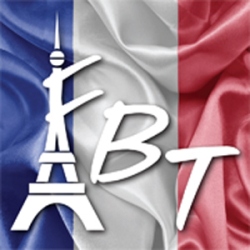
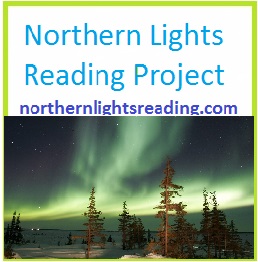









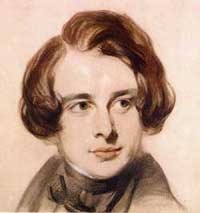
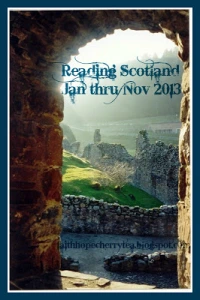
What a really useful resource! I will have to look into it once I get a chance!
Yes, Becca! For all it contains, the paperback and ebook prices are bargains. I hope libraries will want to have it too. It’s the kind of international resource, from the perspective of other cultures, I was dreaming of when I was researching my book.
oh wow, thanks! I often visit that site. Wish me luck, just requested it on Netgalley!
Good luck indeed, Emma! I often thought of French authors I’ve encountered through your blogs; Pascal Garnier was discussed, for example. And of course, as a translator, you should find it of intrinsic interest!
yes, their reviews are across the blog, that’s why I follow them
woohoo, received it thru Netgalley, thanks so much again for mentioning it!
Great! Hope you find some new gems there! I will love to hear/read your thoughts about it.
I will definitely review it